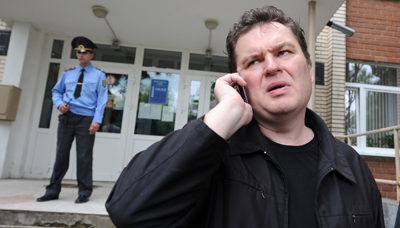New York, June 21, 2012–Authorities in Belarus must drop the charges against a prominent journalist arrested today for libel against the president, and immediately release him, the Committee to Protect Journalists said today. Andrzej Poczobut has been targeted in the past for his critical writing, CPJ research shows.
Police raided the Grodno apartment of Poczobut, a correspondent for the Polish daily Gazeta Wyborcza, confiscated at least one computer, and detained him for questioning, the independent news website Charter 97 reported. Poczobut is the target of a criminal case over articles he wrote for Charter 97 and Belarussky Partizan, another independent news website, in which he criticized authoritarian Belarusian leader Aleksandr Lukashenko and his domestic and international policies, according to news reports. Details of the case are not available.
When Poczobut refused to answer questions about the case, police arrested him, news reports said. It is unclear when authorities opened the case. He is being held at a Grodno prison, according to Charter 97. He faces up to five years in prison if convicted, according to the Russian service of the U.S. government-funded Radio Free Europe/Radio Liberty.
“Belarus must release Andrzej Poczobut without any further delay,” said CPJ Deputy Director Robert Mahoney. “Authorities should stop using criminal libel as a tool to silence journalists who criticize them.”
CPJ research shows that Belarusian authorities have long targeted Poczobut for his critical publications. In 2011 alone, Poczobut faced detention, imprisonment, raids on his apartment, confiscation of his equipment, politicized prosecution, and a suspended prison term sentence on charges of libel against the president, all in connection to his critical journalism, according to CPJ research.
